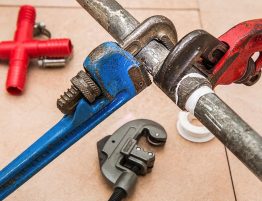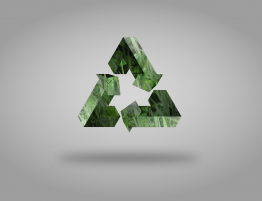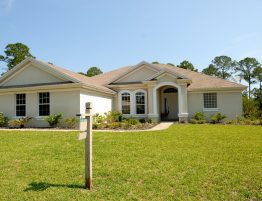
Your AC system is designed to provide you comfortable indoor air when it would be uncomfortable to be outside. But what if being outside is more than just uncomfortable? Poor outdoor air quality from high levels of allergens to pollution to the aftereffects of wildfires can be dangerous to your health. How good is your air conditioner at protecting you from what’s outside? And is the unit itself able to withstand the outside exposure?
Pollen
Seasonal and weather-related spikes in pollen counts can make it tough for those who suffer allergies to enjoy the outdoors. Being indoors in the air conditioning may be the only way to survive high pollen counts (in addition to taking allergy medications). Most well-maintained air conditioning systems are up to the task of removing pollen from the indoor conditioned air. When pollen is high, it may be necessary to change your AC filter more often, and to choose filters designed to strip out these allergens. But do exercise caution and get recommendations from your air conditioning expert, as filters with mesh too fine can actually “suffocate” your air system. The AC will work harder, and have more difficulty pushing air into your house. It may even refuse to kick on, so choose a filter that does the job while allowing the AC to do its.
Pollution
High pollution like smog can make urban outdoor air quality chronically poor, but some temporary events can cause pollution to increase in the short term. Wildfires, even many miles away, are one example of polluting events that can put a strain on your air conditioning system (or even a local large building fire in your area). When wildfire smoke levels are high, it is generally recommended to remain indoors in air conditioned environments, so ACs are still a good defense against poor outdoor air quality. Keep an eye on the filter, as more frequent changes may be necessary, and avoid compounding the problem by refraining from smoking indoors, burning candles, or igniting a fireplace.
Prevention
To prolong the life of your air conditioner (and/or heat pump), seasonal professional maintenance is recommended. When high-pollution events occur (or are imminent), additional preventive maintenance or a professional review of your system afterward will ensure everything is working as it should, and can avoid future surprise breakdowns.
How you use your AC can also affect how both the outdoor and indoor components handle the extra load of contaminated air. Programmable thermostats that allow the system to shut off (or decrease its output) when you’re away, but that return to comfortable levels before you return, help save energy and reduce the amount of contaminated air that must pass through the filter and be cleaned. Also, while it might be tempting to keep the AC fan in the “on” position during high-pollution times, not only does that make the system work harder, but it will increase indoor humidity levels. Too much humidity can encourage mold growth, introducing a dangerous indoor air quality problem to rival what’s happening outside. Instead, programming your fan to circulate when the AC is running, and then periodically (up to 15 minutes per hour) make the system more efficient and still allows it to effectively remove excess moisture from the incoming air.
In poor air quality conditions, your best refuge is still inside where air is filtered and conditioned for comfort. With regular maintenance and a qualified service provider on call, your AC system can handle almost anything that rides in on the wind.







